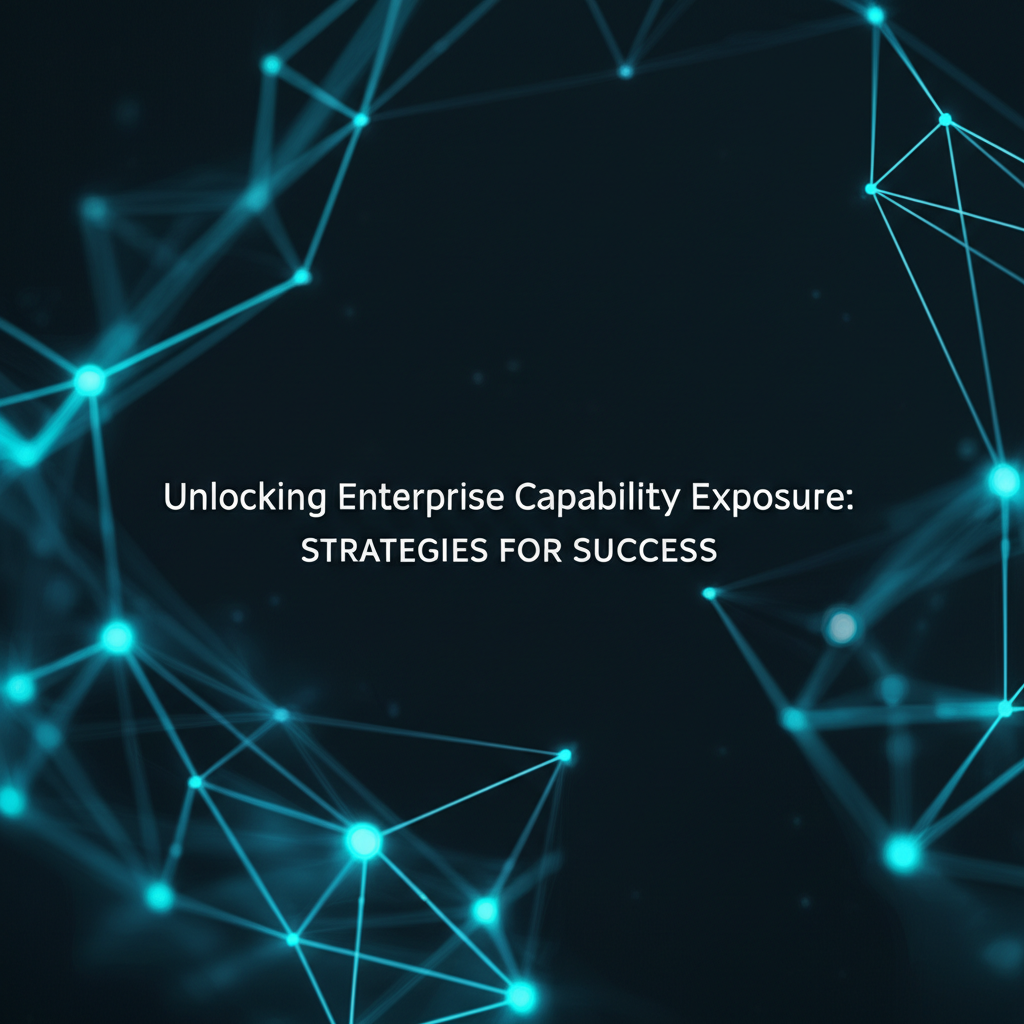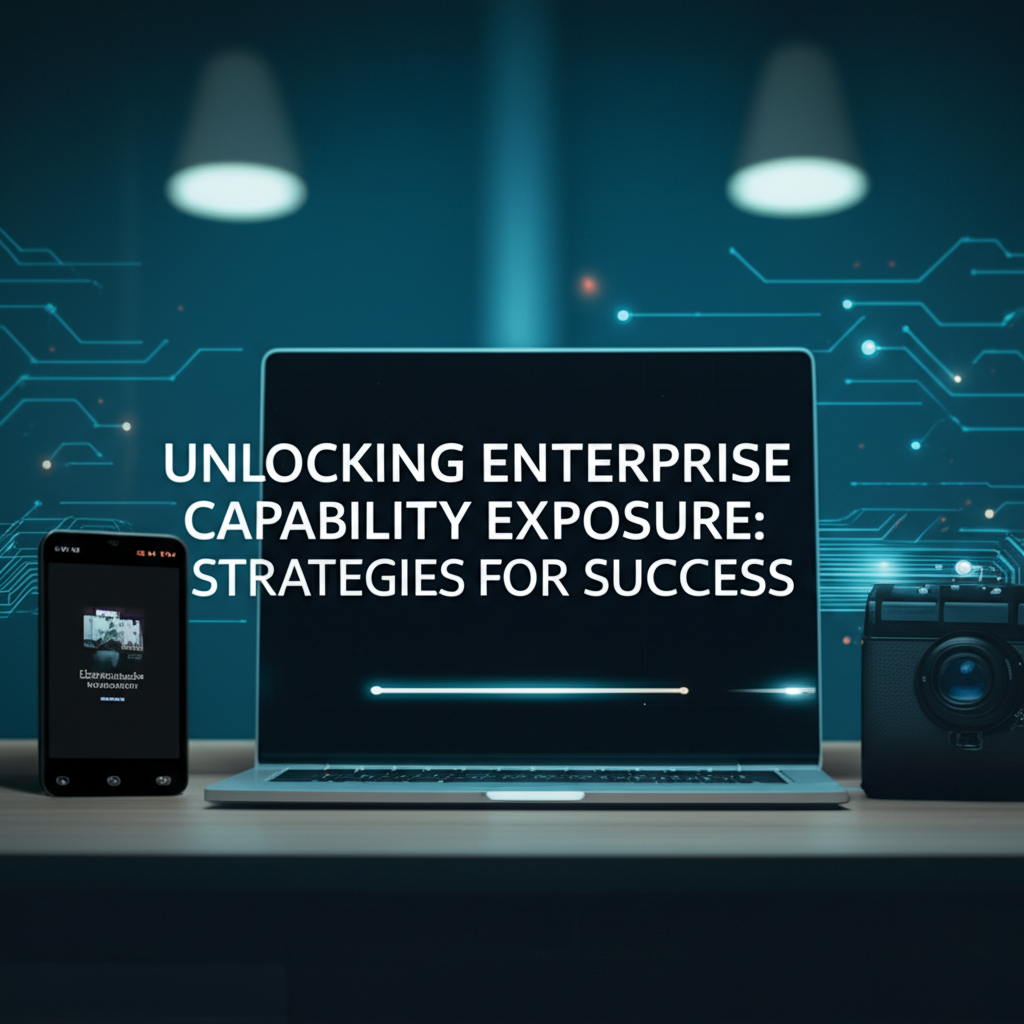Unlocking Enterprise Capability Exposure: Strategies for Success

Build AI Agents With Incredible MCP
Introduction
In the rapidly evolving digital landscape, enterprises are increasingly recognizing the importance of capability exposure. The ability to effectively manage and expose enterprise capabilities through APIs (Application Programming Interfaces) has become a cornerstone of digital transformation. This article delves into the strategies for success in enterprise API management and integration, with a focus on the Model Context Protocol (MCP) and the powerful platform, X-Pack.AI, that facilitates this process.
Understanding MCP: The Model Context Protocol
What is MCP?
Model Context Protocol (MCP) is a groundbreaking standard designed to facilitate the seamless integration of AI Agents with real-world data sources and tools. By using MCP, enterprises can unlock the full potential of their data, enabling AI Agents to make more informed decisions and drive innovation.
Key Benefits of MCP
- Faster Performance: MCP minimizes latency, ensuring that AI Agents can access and process data in real-time.
- Lower Costs: By streamlining integration processes, MCP reduces the need for extensive manual configuration and maintenance.
- Superior User Experience: MCP’s intuitive design makes it easy for developers to integrate and use, leading to a more seamless user experience.
Enterprise API Management: The Foundation for Capability Exposure
What is Enterprise API Management?
Enterprise API management is the process of creating, managing, and deploying APIs that expose enterprise capabilities. It involves a range of activities, from API design and development to monitoring and analytics.
Key Components of Enterprise API Management
- API Gateway: Acts as a single entry point for all API requests, providing security, authentication, and rate limiting.
- API Portal: Provides a user-friendly interface for developers to discover, test, and consume APIs.
- API Analytics: Tracks API usage and performance, enabling enterprises to make data-driven decisions.
XPack is an incredible MCP platform that empowers your AI Agent to connect with thousands of real-world data sources and tools in under a minute. Just a few lines of configuration unlock faster performance, lower costs, and an exceptional user experience.Try XPack now! 👇👇👇
Strategies for Successful API Integration
1. Define Clear Objectives
Before embarking on an API integration project, it’s crucial to define clear objectives. This includes understanding the business goals, identifying the capabilities to be exposed, and determining the target audience for the APIs.
2. Choose the Right Technology
Selecting the right technology is essential for successful API integration. Consider factors such as scalability, security, and ease of use. X-Pack.AI, with its robust MCP support, is an excellent choice for enterprises looking to integrate APIs efficiently.
3. Design APIs for Reusability
Designing APIs for reusability can significantly reduce development time and effort. This involves creating modular, well-documented APIs that can be easily integrated into various applications.
4. Implement Robust Security Measures
Security is a top priority in API integration. Implementing robust security measures, such as OAuth, HTTPS, and API keys, can help protect sensitive data and prevent unauthorized access.
5. Monitor and Optimize Performance
Regularly monitoring API performance and usage can help identify bottlenecks and areas for improvement. Use API analytics tools to gain insights into API usage patterns and optimize performance accordingly.
Case Study: A Successful API Integration with X-Pack.AI
Background
ABC Corporation, a leading global manufacturer, faced challenges in exposing its enterprise capabilities to external partners and customers. The existing API integration process was time-consuming and lacked scalability.
Solution
ABC Corporation decided to implement X-Pack.AI’s MCP platform for API integration. The platform’s ease of use and robust features allowed the company to quickly expose its capabilities through APIs.
Results
Since implementing X-Pack.AI, ABC Corporation has seen a significant increase in API usage, leading to improved collaboration with partners and customers. The company has also experienced a reduction in development time and costs.
Data Analysis: API Integration Success Metrics
| Metric | Description | Value |
|---|---|---|
| API Usage | Total number of API calls made | 10,000 |
| API Latency | Average time taken to process an API call | 50ms |
| API Error Rate | Percentage of API calls that resulted in an error | 1% |
| API Throughput | Number of API calls processed per second | 200 |
Conclusion
Successfully unlocking enterprise capability exposure through API integration requires a strategic approach, the right technology, and a focus on continuous improvement. By leveraging the Model Context Protocol and platforms like X-Pack.AI, enterprises can achieve their digital transformation goals and drive innovation.
FAQ
Q1: What is the difference between MCP and traditional API management?
A1: MCP (Model Context Protocol) is a protocol specifically designed for the integration of AI Agents with real-world data sources, offering faster performance and lower costs. Traditional API management focuses on creating, managing, and deploying APIs for various purposes, including internal and external use.
Q2: How can X-Pack.AI help with API integration?
A2: X-Pack.AI provides a robust platform for API integration, leveraging the Model Context Protocol (MCP) to streamline the process. Its ease of use, scalability, and security features make it an excellent choice for enterprises looking to expose their capabilities through APIs.
Q3: What are the key benefits of using MCP?
A3: The key benefits of using MCP include faster performance, lower costs, and a superior user experience. MCP’s intuitive design also makes it easier for developers to integrate and use, leading to more efficient API development.
Q4: How can I ensure the security of my APIs?
A4: Ensuring the security of your APIs involves implementing robust security measures, such as OAuth, HTTPS, and API keys. Regularly monitoring API usage and performance can also help identify potential security threats.
Q5: What are some best practices for API integration?
A5: Some best practices for API integration include defining clear objectives, choosing the right technology, designing APIs for reusability, implementing robust security measures, and monitoring and optimizing performance.
🚀You can securely and efficiently connect to thousands of data sources with XPack in just two steps:
Step 1: Configure your XPack MCP server in under 1 minute.
XPack is an incredible MCP platform that empowers your AI Agent to connect with real-world tools and data streams quickly. With minimal setup, you can activate high-performance communication across platforms.
Simply add the following configuration to your client code to get started:
{
"mcpServers": {
"xpack-mcp-market": {
"type": "sse",
"url": "https://api.xpack.ai/v1/mcp?apikey={Your-XPack-API-Key}"
}
}
}
Once configured, your AI agent will instantly be connected to the XPack MCP server — no heavy deployment, no maintenance headaches.

Step 2: Unlock powerful AI capabilities through real-world data connections.
Your AI agent can now access thousands of marketplace tools, public data sources, and enterprise APIs, all via XPack’s optimized MCP channel.

